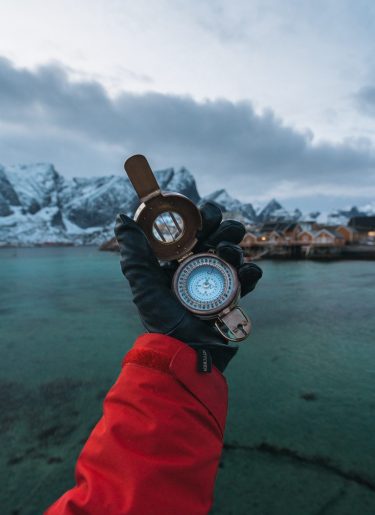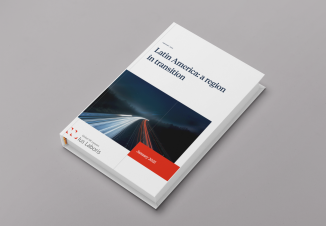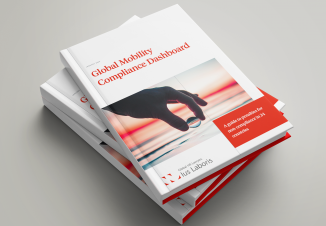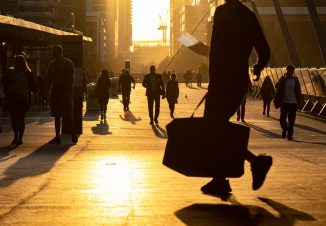On 18 March, Chile closed its borders in response to the outbreak of coronavirus. The Ministry of the Interior and Public Security issued Decree No. 102, declaring the temporary closure of places authorised for the entry of foreign nationals into Chile.
In general under this Decree, only Chilean citizens and residents of Chile are allowed to enter the country. In addition, foreign nationals who have already received an administrative resolution confirming that their applications for residency or definitive stay are in process at the Department of Foreign Affairs((i.e. the Department of Foreign Affairs has received all the documents and is processing the visa) also allowed to enter. On the other hand, those who have stamped consular residence visas but have not yet made an effective entry to Chile, may not do so while these restrictions remain in force.
However, on 10 October, as reports of new cases of COVID-19 have decreased, the Government eased some of the restrictions on entering Chile. As a result, Decree Number 102 was amended allowing the entry and exit of:
- Cargo and associated staff strictly necessary for its entry and exit from Chile and relief crews.
- Transit passengers.
- Argentinian nationals and foreign nationals resident in Argentina, whose transit takes place between the Integración Austral and San Sebastián border crossing points, if they comply with the instructions of the Chilean health authority.
- Any foreign companion of a disabled or incapacitated person or person with reduced mobility, in the cases authorised by Supreme Decree No. 369 of 2017 of the Ministry of National Defence.
- Foreign crew members of ships and aircraft entering Chilean territory.
- Foreign parents or children of a Chilean or a foreigner resident who is normally resident in Chile, born abroad, who enter as tourists. Evidence of this must be provided to the border control authority, by means of the corresponding birth certificate duly apostilled or legalised.
- Staff sent to Chile by other states or international organisations to provide humanitarian aid or international cooperation duly accepted by Chile.
- Foreign nationals with diplomatic and official visas, who have the appropriate official identification cards issued by the Chilean Ministry of Foreign Affairs.
- Foreign residents in a regular migratory situation, whose applications for residency or definitive stay, are being processed by the Department of Foreign Affairs, or who have a valid permanent residence or residence visa issued by the Department of Foreign Affairs.
- Foreign nationals who are married to or have a Civil Union Agreement, celebrated in Chile, with a Chilean or a foreign national legally resident in Chile, who enter as tourists.
- Foreign nationals who are married to or have a Civil Union Agreement, celebrated abroad, with a Chilean or a foreigner national legally resident in Chile, who enter as tourists. A Consular ‘safe-passage’ (a travel permit obtained from any Chilean Consulate abroad which allows Chilean citizens and foreign nationals to travel to Chile in special situations) and corresponding certificate will be required.
- Foreign nationals entering for urgent business purposes, if these are convenient and useful for Chile. A Consular self-passage will be required.
- Individuals with a Consular safe-passage granted by virtue of the provisions set forth in article 66 of the Consular Regulations, which enable Chilean citizens whose travel or identity documents have been lost, destroyed or stolen or have expired to return to Chile.
Tourists are not yet allowed to enter the country.
Moreover, all Chilean citizens, residents of Chile and those foreign nationals allowed to enter the country must undergo a mandatory 14-day quarantine period upon their arrival. This requirement can be lifted by the health authorities if they are provided with a negative COVID-19 test result. The test must have been performed a maximum of 72 hours before entry to Chile and must have been carried out by a recognised health authority laboratory in the country where it was conducted. On the other hand, if the COVID-19 test is performed in Chile, the person will be authorised to end the quarantine from receipt of the test result. S/he must comply with the guidelines from the health authority in relation to this.
There are also some restrictions on intercity travel where sanitary cordons are in place. In this case, all travellers may be subject to temperature screenings, they must carry a sanitary passport and a sworn statement. Moreover, if travellers are going to boroughs that are under isolation, they require temporary permission from the Chilean police.
In conclusion, even if Chile still has entrance restrictions and limits on free movement to stop the increase of COVID-19 infections in the country, this new regulation is making travel to Chile more flexible for foreign nationals.



